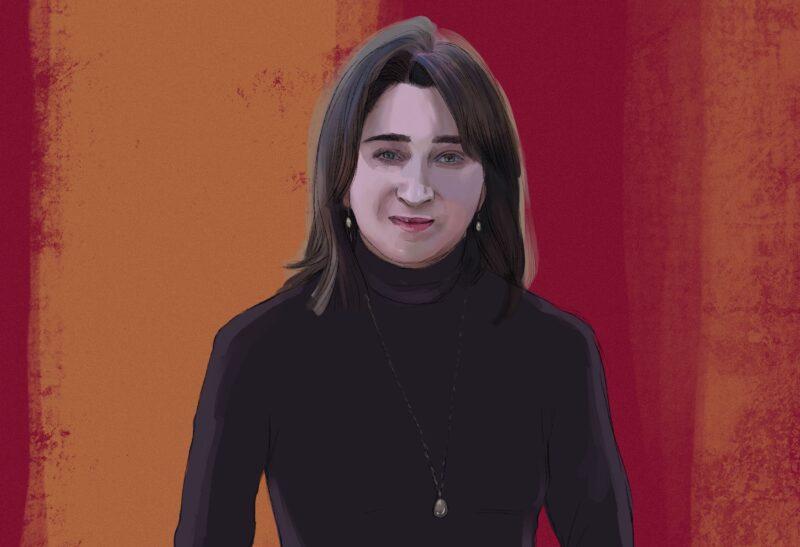Sevinj Vagifqizi, editor-in-chief of the independent news website Abzas Media, has warned that she will begin a hunger strike unless conditions at Baku Detention Center No. 1 improve.
Vagifqizi, who has been in custody for over a year, raised these concerns through her mother, Ofelia Maharramova, during a press conference in Baku.
According to Maharramova, her daughter’s determination to protest could inspire others in the detention center to join her. “Sevinj told me, ‘If I start a hunger strike, everyone will join me,'” Maharramova said, addressing reporters at the Musavat Party headquarters.
Maharramova described severe restrictions on visitation and substandard living conditions in the facility. Over the past year, Vagifqizi has reportedly been allowed only three face-to-face meetings with her family, while most interactions occur through a glass partition under constant surveillance. “They claim it’s for security, but even the phones we use to speak are likely tapped,” Maharramova stated.
She also accused detention center staff of physical mistreatment, claiming that a warden deliberately injured Vagifqizi’s hand. Additionally, detainees face inadequate food provisions, unsanitary drinking water, and limited access to basic hygiene. “Hot water is only available for one hour a week, shared among 15 people. This creates tension among inmates, fostering disputes over food and bathing,” Maharramova explained.
Vagifqizi, along with fellow detained journalist Nargiz Absalamova, has reportedly faced retaliation for documenting and exposing these conditions. Absalamova’s mother, Sevda Absalamova, claimed her daughter has been denied access to clean water and is subjected to psychological pressure. Guards allegedly turn other inmates against her by restricting privileges.
Human rights defender Rufat Safarov, a former prisoner himself, corroborated these claims, stating that the authorities often retaliate against critical voices in detention. “These actions are meant to intimidate journalists and activists,” Safarov said. Despite this, he noted that detainees like Vagifqizi and Absalamova continue to report on their conditions, highlighting systemic issues in Azerbaijan’s penal system.
Seymur Hazi, a former political prisoner and deputy chairman of the Azerbaijan Popular Front Party, argued that the targeting of journalists reflects a broader effort to suppress dissent. “The government fears losing control over information. Women like Sevinj and Nargiz have shaken the system by refusing to be silenced,” Hazi said.
The treatment of detained journalists, activists, and opposition figures has drawn criticism from international rights groups, with allegations that the Azerbaijani government uses imprisonment as a tool to stifle dissent. Hazi urged society to resist such repression, emphasizing that solidarity and public scrutiny are vital.
“This isn’t just about poor prison conditions,” Hazi concluded. “It’s about a government unwilling to tolerate criticism, and society must stand united to demand change.”



